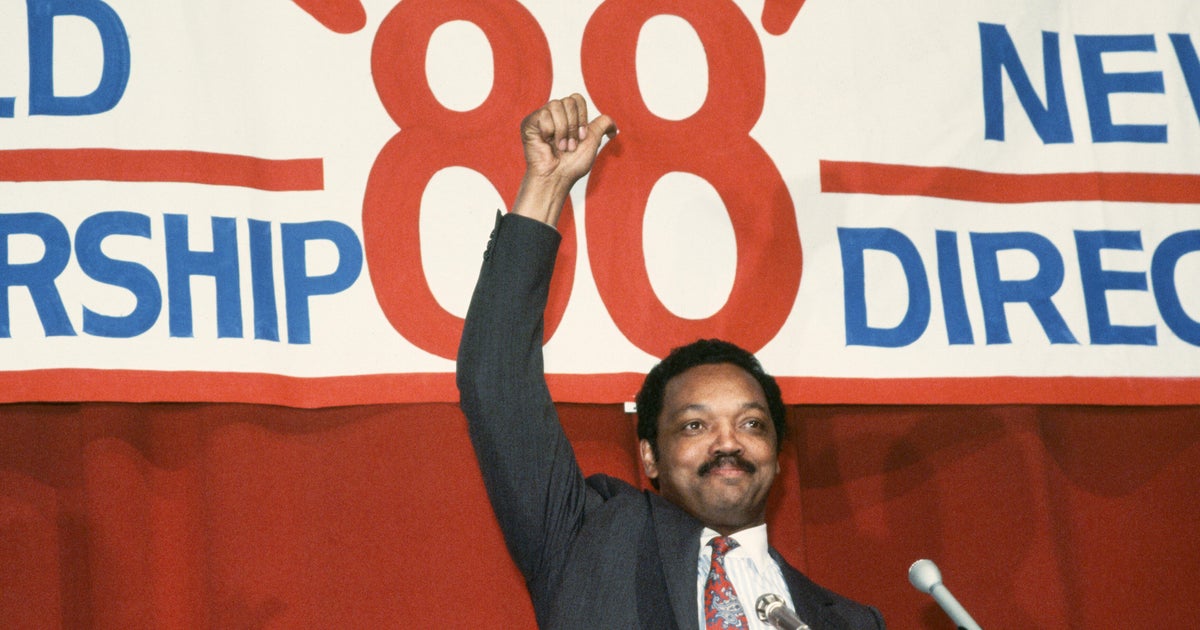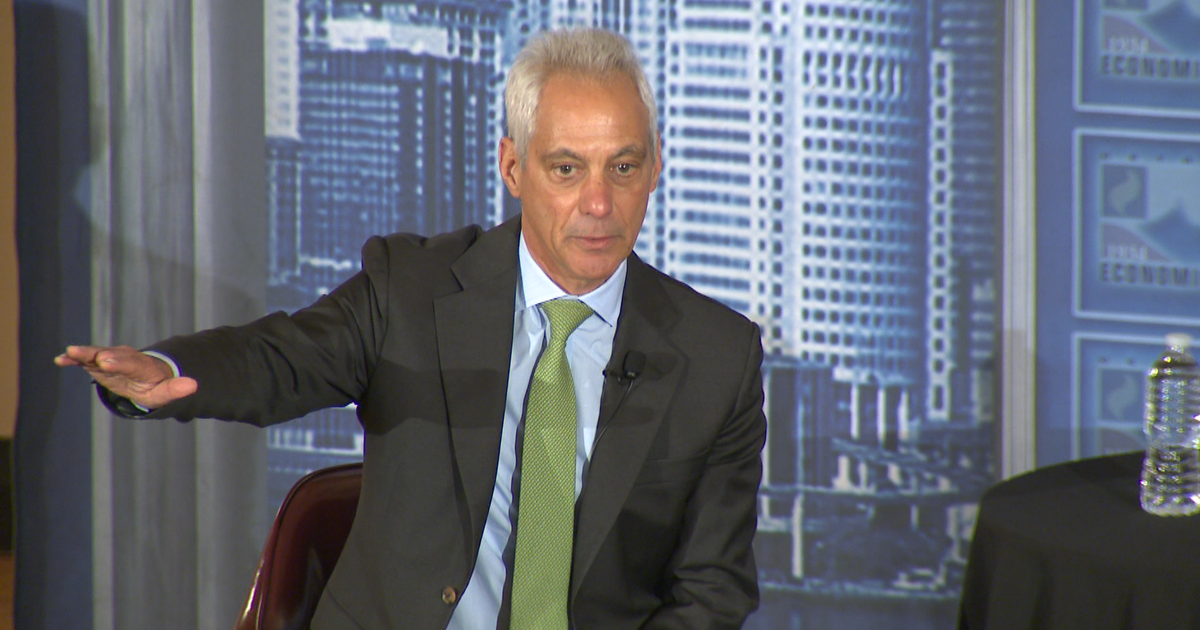Digital Debate: Teamster's Hoffa & Amway Heir DeVos: Clash Over Unions!
Teamsters President James P. Hoffa is associated with the labor movement as few others, having been weaned on it by his late father, storied union boss Jimmy Hoffa who ran the powerful organization decades earlier.
Billionaire Dick DeVos is connected to conservative causes and pro-business GOP issues just as his influential 86-year-old father, Amway co-founder and philanthropist Richard DeVos.
Young Hoffa and DeVos have vastly differing views of unions, which is why in this heated political climate battles are raging across America over unions in Indiana, Ohio, Illinois, Michigan, California and other states, the two took time to participate in CBS Local Digital Debate.
This exclusive week-long forum kicks off with this question: Some say the union movement helped build America's Middle Class but the economy and times are changing. Are unions necessary for a strong America in the 21st Century?
The two will answer a different question each day this week with retorts to responses likely.
“I believe unions are more relevant than ever,” said Hoffa, who represents 1.4 million members. “All across the country – including Wisconsin, Ohio and Indiana – we have seen a coordinated assault on the labor movement and collective bargaining.”
“Anti-worker billionaires like the Koch brothers, Sheldon Adelson and Richard DeVos [Dick’s father] have backed these efforts to turn back the clock on the middle class.”
“They want to strip workers of their right to form a union and bargain collectively for good wages and benefits,” Hoffa added.
Dick DeVos, one-time GOP gubernatorial candidate who left the political stage in 2006, got back in the saddle when Proposal 2 wound up on Michigan’s ballot which asks Michiganders to become the first state to enshrine collective bargaining into its constitution.
“Workers and job creators, through hard work, ingenuity, sweat and risk-taking, literally made the strongest economy in the world and the greatest standard of living in history,” DeVos said.
“The greatest generation, which includes patriots like my father did not just win a World War, they labored shoulder-to-shoulder with fellow workers to create and sustain value-added enterprises.”
“The big union bosses have engaged in cozy deals and political backroom dealing in order to advance their personal agendas, not those of their members,” DeVos said, singling out Hoffa, United Auto Workers’ President Bob King, Service Employees International Union President Mary Kay Henry, National Education Association President Dennis Van Roekel, AFL-CIO’s Richard Trumka, and American Federation of Teachers’ Randi Weingarten.
Unions in political crosshairs
One point not up for debate is the diminishing stature of the labor movement.
It’s been shrinking since the 1950s when 40 percent of the U.S. workforce belonged to a union.
“Back then, everyone was familiar with unions as someone in your family – maybe an uncle, was a member,” said Mike Smith, labor historian at the Walter Reuther Library at Wayne State University.
“That’s no longer the case,” he said, adding 12 percent of U.S. workers are in unions with unionization representing seven-percent of the private sector and 37-percent of public sector jobs.
“Unions and their leaders are sort of like fireman -- they fight the fire that is burning brightest,” Smith added.
"The trend for the labor movement is increased support for public sector members, the group that has lost millions of jobs over the past four years and the group that has been under direct and sustained attack from conservative forces,” Smith added.
Smith also cited fallout of the Air Traffic Controller strike 31 years ago when President Ronald Reagan ended up replacing striking workers as leaving a lasting impression.
“That’s really when you started to see attitudes about unions change,” Smith said, adding with fewer people having a union member in the family they relied on what they read or heard.
That coupled with the 2010 GOP sweep of statewide elected offices across the country and labor advocates have been thrust into defending themselves and their mission in various states and in state legislative hallways against measures like Right-to-Work.
Right to Work prevents labor from bargaining contracts that require dues paying union membership for all employees at a business. Without a united work force contributing to the union to defend its membership’s interests, it is left with a less robust budget and divided membership split between dues payers and those who don’t.
Legislation has recently passed that curbed bargaining rights in Wisconsin, made Indiana a “right to work" state, and in Ohio the governor signed legislation that limited collective-bargaining rights for public-sector workers though voters then repealed it.
Proposition 32 on California’s ballot next week is another example of unions under siege.
It exempts corporate interests from limits on political spending but imposes barriers to unions. Paycheck deductions – money raised through deductions from workers’ paychecks – could no longer be used for political purposes.
Hoffa and DeVos will answer a question about unions’ political influence in this CBS Digital Debate too in coming days.
Another historic battle in Michigan
Millions have been spent touting the two sides of Proposal 2 in Michigan which is birthplace of the Teamsters and UAW and been the location of some rough and tumble and occasionally bloody battles.
Proposal 2 would grant the right of public and private employees to organize and bargain collectively through labor unions. It would block much of the anti-union laws that have been enacted including prospects of Right To Work legislation.
With 18 percent of Michigan’s workforce in unions, Michigan would seem the ideal place to wage the first battle in the nation to protect collective bargaining.
If successful, it could serve as a model for other states and encourage union leaders to take similar legislation directly to voters.
In fighting Prop 2, DeVos has locked arms with other deep pocketed CEOs and raised millions for it.
Ron Weiser, Republican National Finance Chairman and former U.S. Ambassador to Slovakia, is among those he is working closely with.
“Prop 2 would kill Michigan,” Weiser said of impact it would have on business.
Michigan’s Gov. Rick Snyder, who came in with the GOP landslide two years ago, has been hitting the campaign trail to beat back Proposal 2, saying it would undue the gains the state has made in making it more attractive to outside investment.
"The unintended consequences of Proposal 2 will result in a $1.6-billion annual tax hike," said DeVos. “Since collective bargaining is a federally protected right, Proposal 2 is really about special interests.”
Hoffa sees Prop 2 quite differently.
“This is incredibly important," Hoffa offered, calling it at watershed moment for unions.
He pointed to what happened in Indiana as a motivating factor for Prop 2.
There, Indiana’s state legislature adopted Right To Work legislation in February, making it the 23rd state in the nation and first in the Midwest to have it.
It has given them an advantage, said Dan Hasler, secretary of commerce and CEO of the Indiana Economic Development Corporation.
Hasler said 28 firms have cited that the newly enacted right-to-work legislation factored into their decision to locate projects in the state, bringing 3,400 projected jobs and over $424 million in investment
“What I have heard is that companies like the idea of giving their employee the freedom to choose to join a union or not,” said Hasler. “It’s allowed us to better compete against states below the Mason-Dixon line which is where we consider our competition.”
Union’s imprint on America
Advocates say unions helped make America’s middle class the envy of the world and a better place for working men and women.
“Without unions, Americans would not have a 40-hour work week, minimum wage laws, vacation and holidays, protections on the job, pensions, health benefits, child labor laws,” said Hoffa, adding “You name it, the labor movement fought with blood, sweat and tears to secure those rights.”
DeVos sees it through a different prism.
“American entrepreneurs and U.S. workers made our middle class,” DeVos said. “If anything, big government and big organizations were and remain an impediment.”
Even though labor numbers are thinner, there are still 13 million union members in the United States.
Smith mentioned the United Auto Workers which had had 1.5 million members in 1978 and shrunk to about 400,000 today.
He blamed technology which has replaced many jobs, as well as offshoring and more transplant manufacturing facilities which are non-union.
“Regardless, unions are still a force to be reckoned with,” said Smith. “The labor movement isn’t going away.”
Come back tomorrow and each day this week when James P. Hoffa and Dick DeVos answer questions about unions and whether the United States would be better off without them







